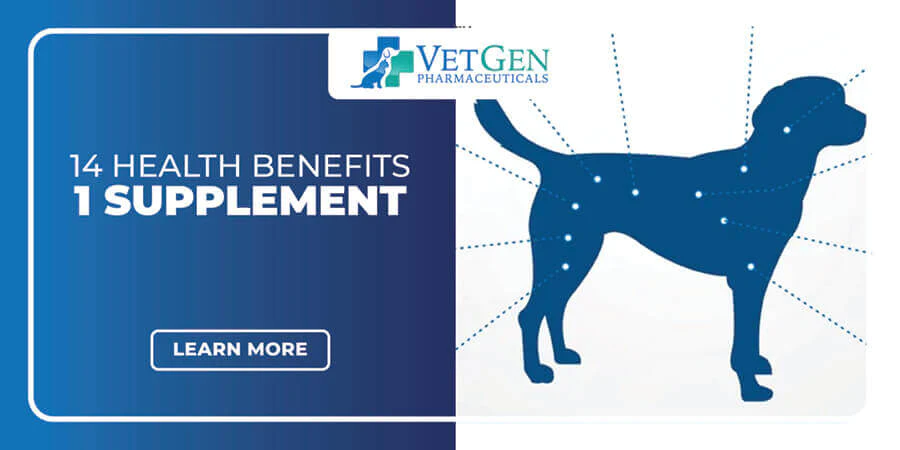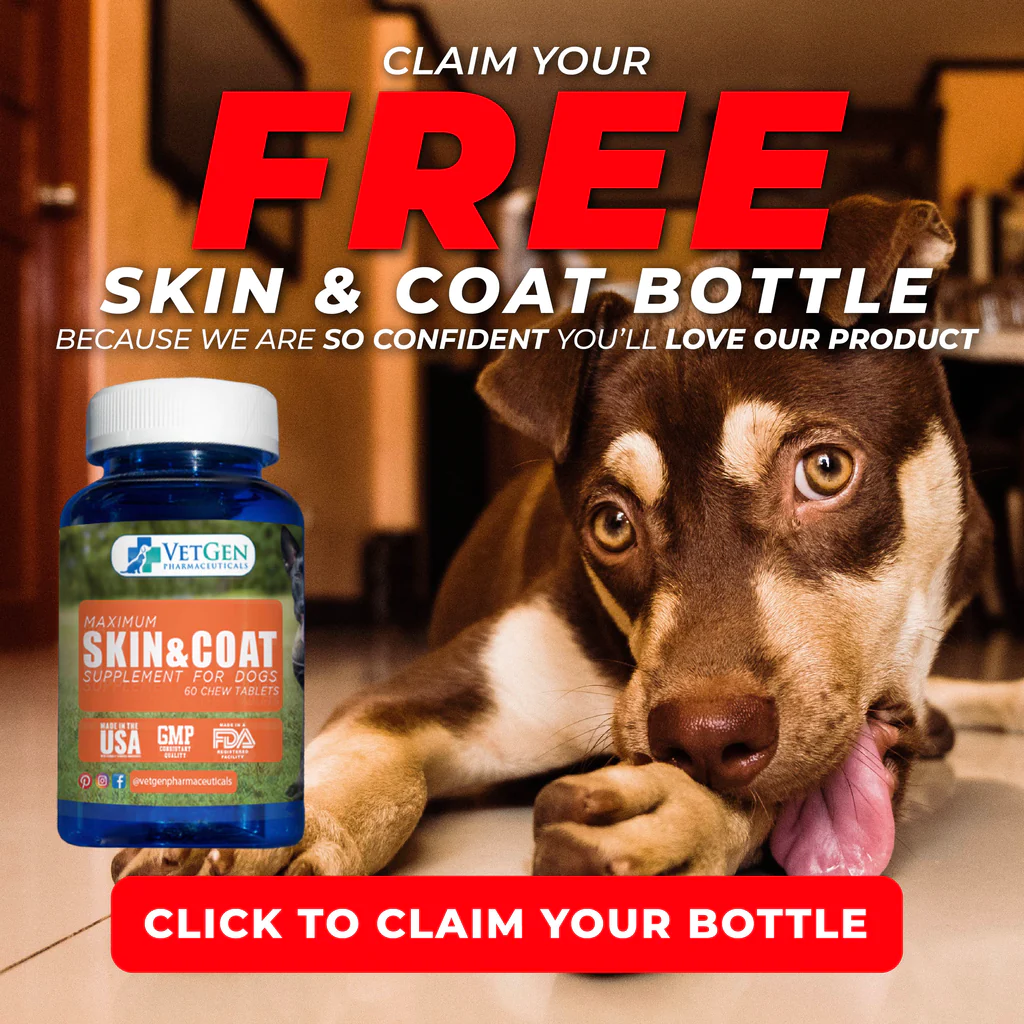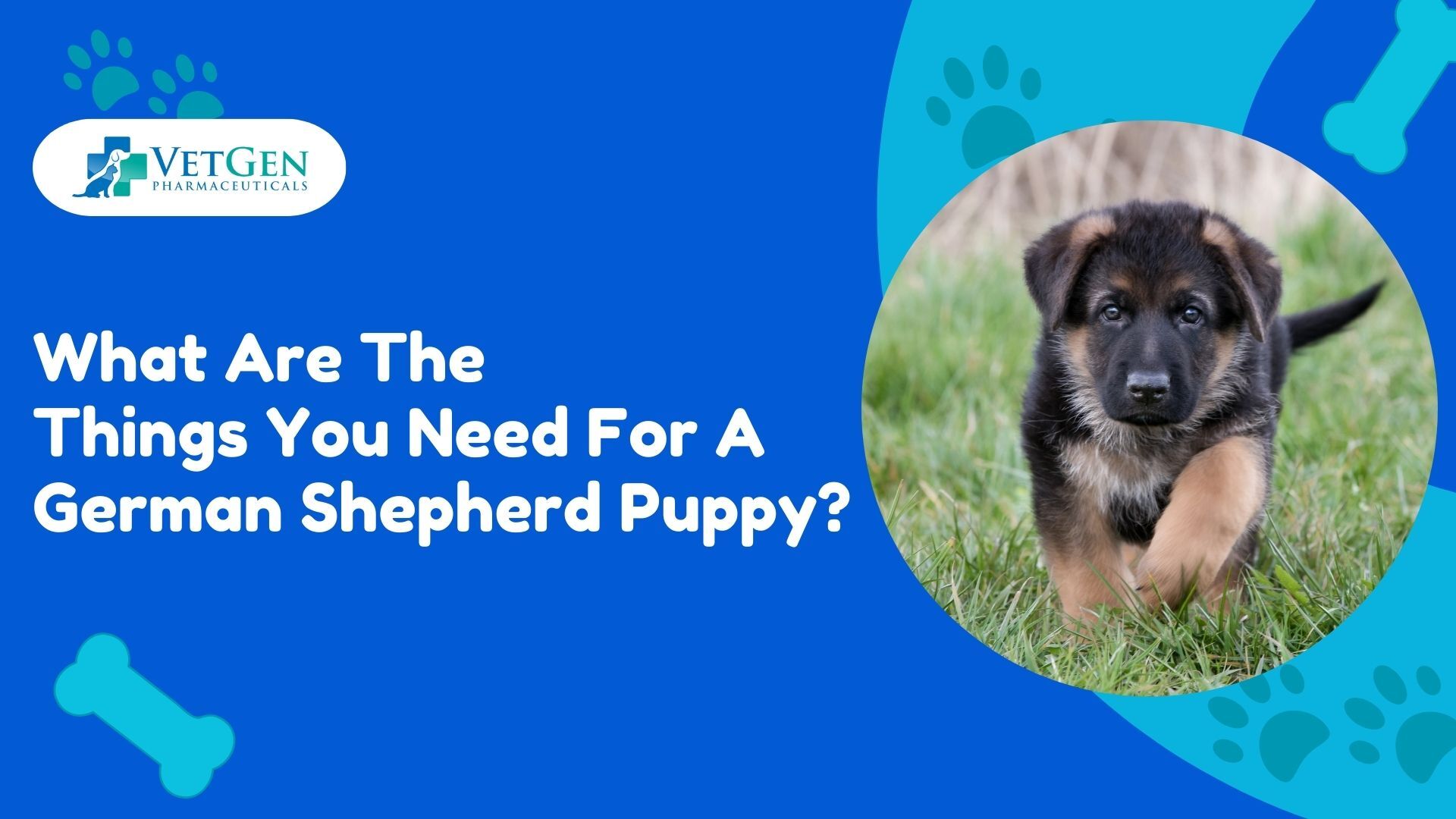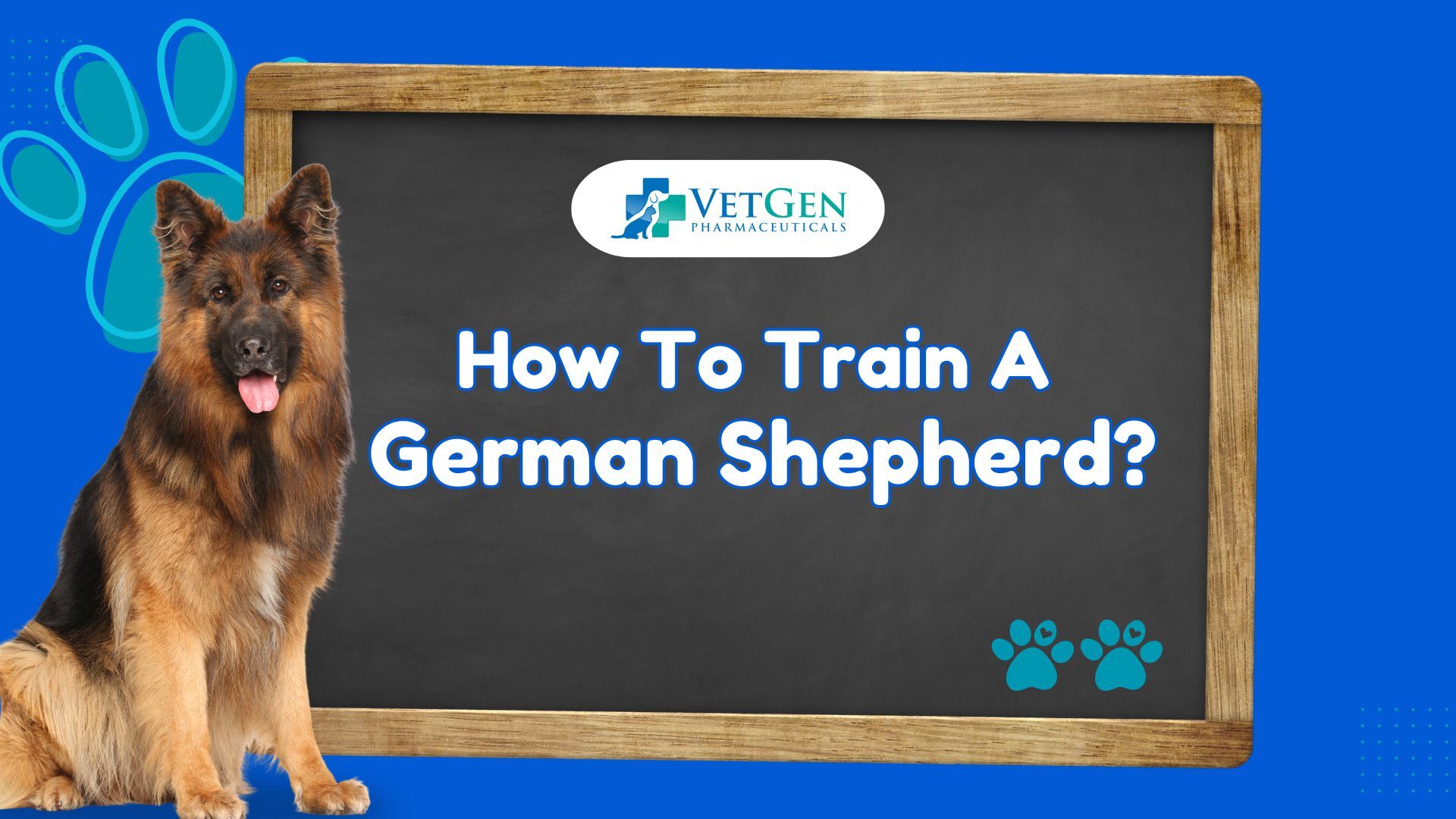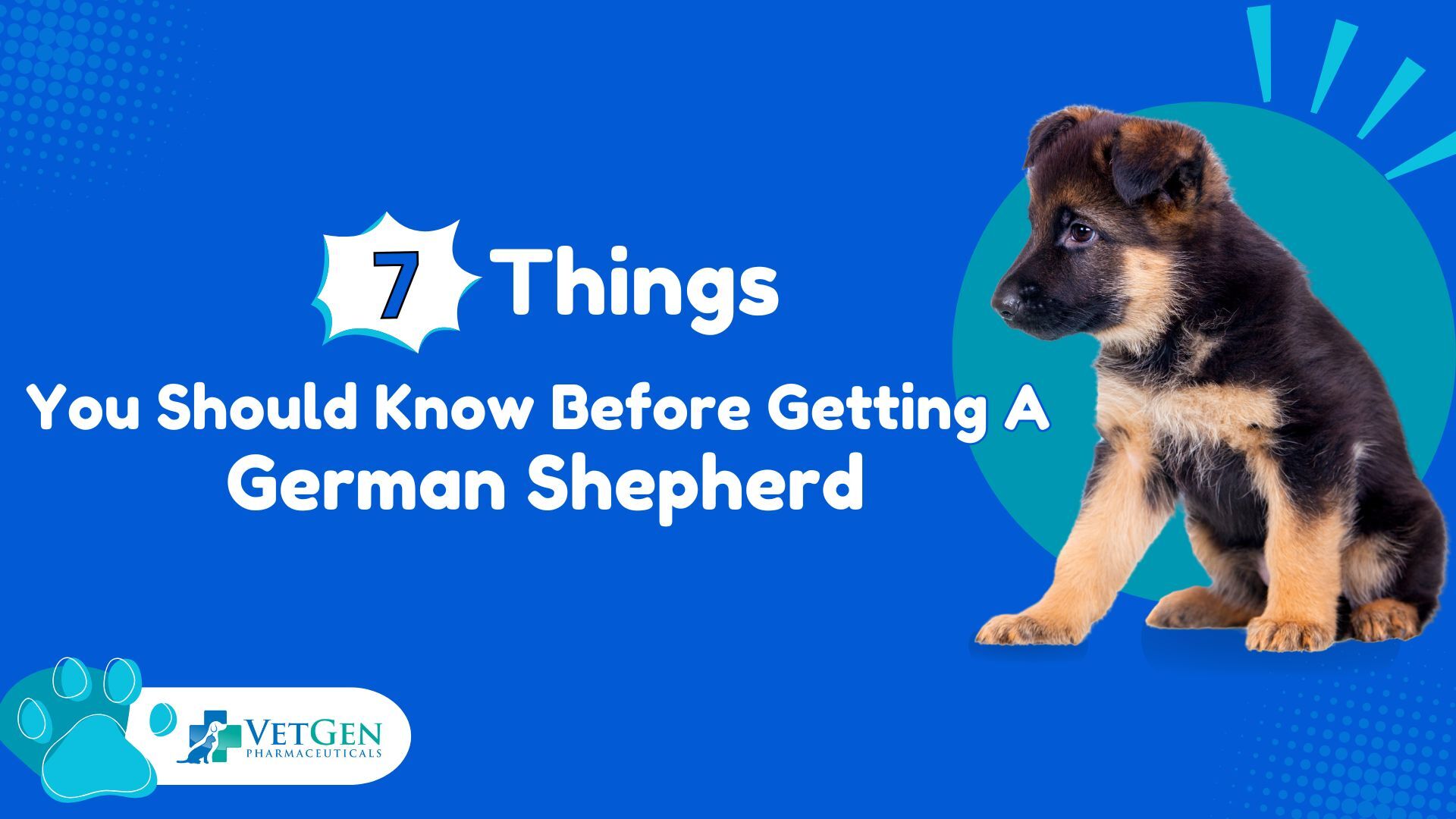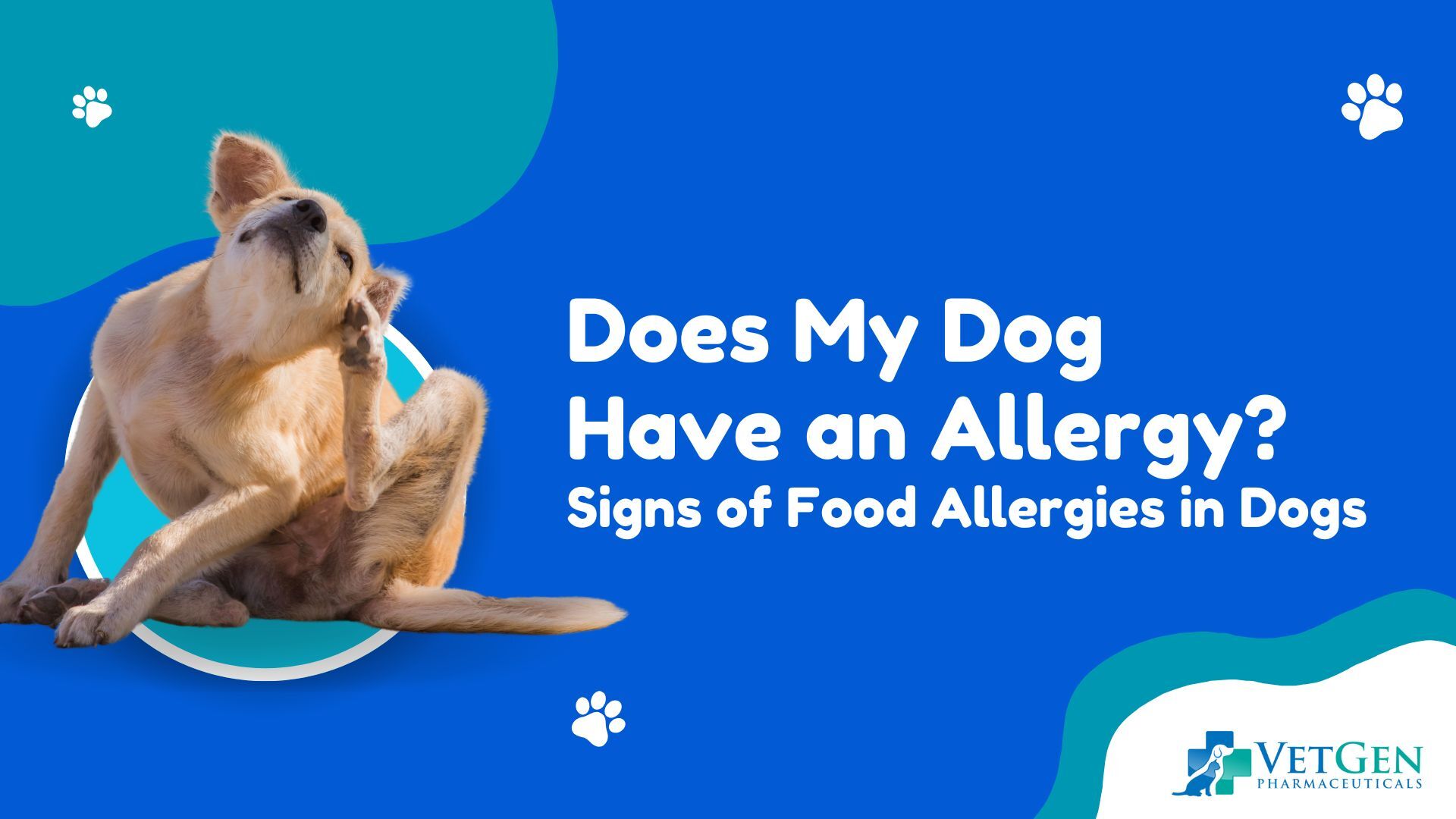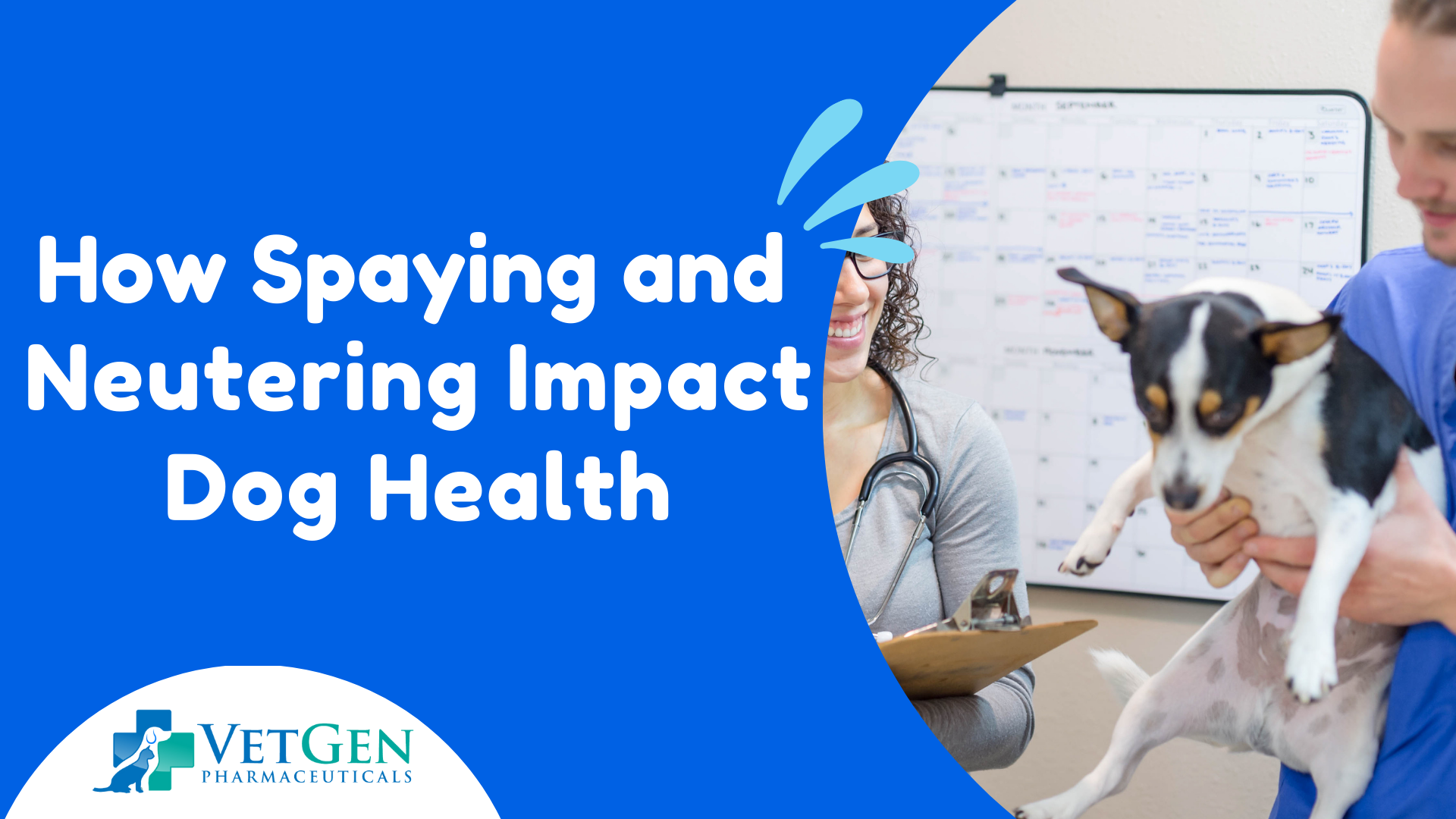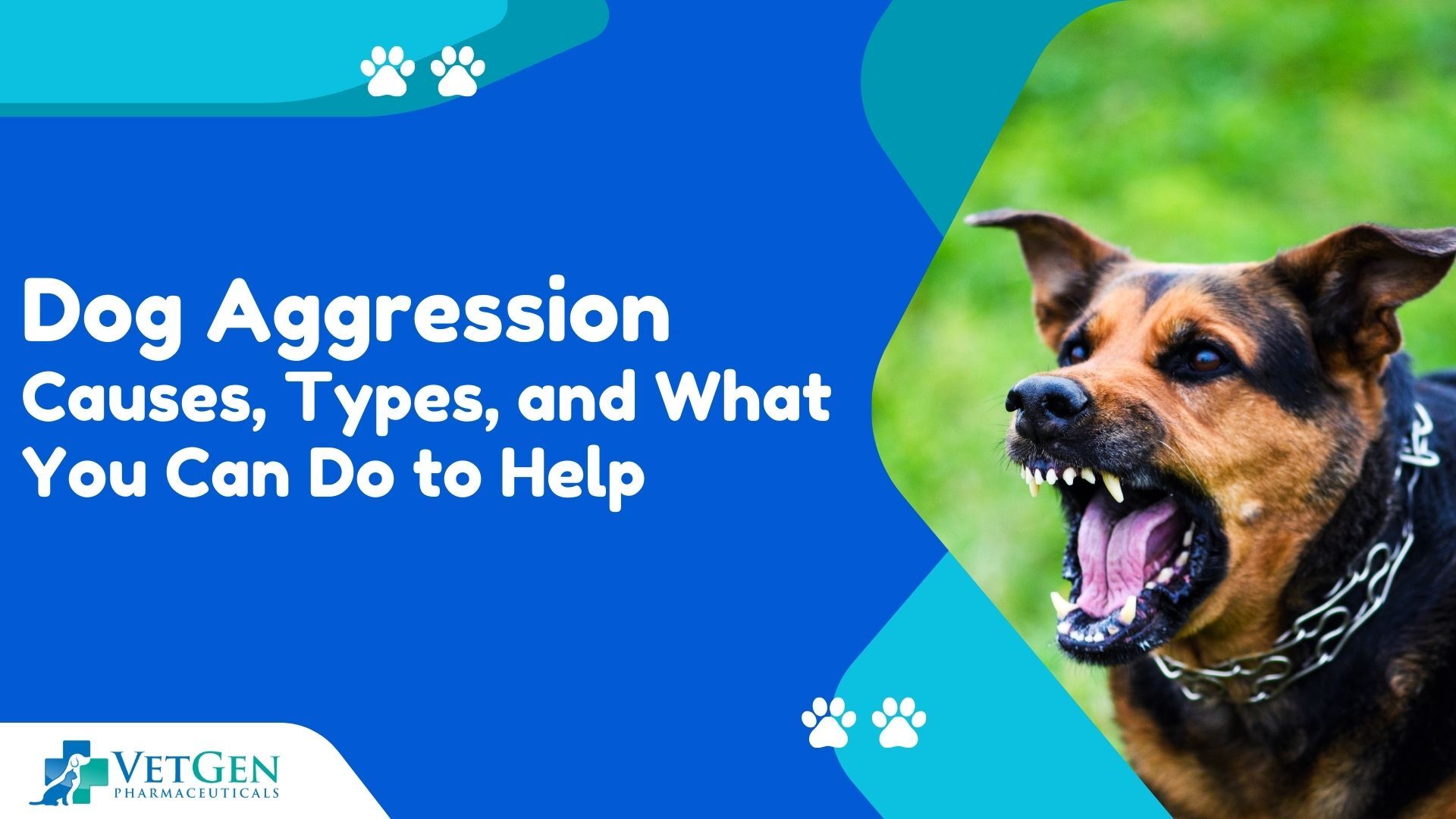Table of Contents
While the eyes may be the window to the soul, your dog’s coat is a window to their health.
It can indicate whether their nutritional needs are being met. As a responsible dog parent, you always want the best for your dog.
Right? Your dog’s coat is the first line of defense against infections and other skin issues in dogs.
A proper diet can protect your dog’s beautiful coat and also enhance overall health.
To help your buddy thrive, you have to meet their nutritional needs.
Is Proper Nutrition Really That Important for Maintaining Your Dogs’ Healthy Coat?
Diet plays a critical role in the health of your dog’s coat and skin.
A proper diet supplies ample nutrients to maintain a healthy coat.
It is important to note that some dogs need specific nutrients more than others.
You may need dog skin and coat supplements to meet your dog’s specific nutritional needs.
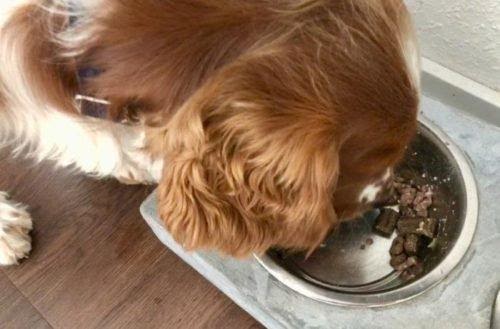
The nutrients in your dog’s food are broken down in the digestive system into basic building blocks like amino acids.
They are easily absorbed and distributed across the body to energize and support a healthy coat, skin, and other bodily functions.
With so many dog food brands purporting to be the best for a healthy coat, how do you choose the right one for your furry family member?
Nutrients to Support Your Dog’s Healthy Coat
When it comes to choosing the best dog food for a healthy coat, you have to analyze all the ingredients listed on the label.
Always choose reputable dog food brands to get the best and most balanced diet for your furry friend.
Nutritionally balanced diets for a healthy coat should include high-quality ingredients that are rich in protein, vitamins, healthy fats, and essential minerals.
1. Proteins
Protein is broken down in the digestive system into essential amino acids, which is absorbed to support a healthy coat.
According to numerous studies, dogs’ fur is around 95% protein. Your dog’s coat and skin takes between 25% and 30% of the protein they consume daily.
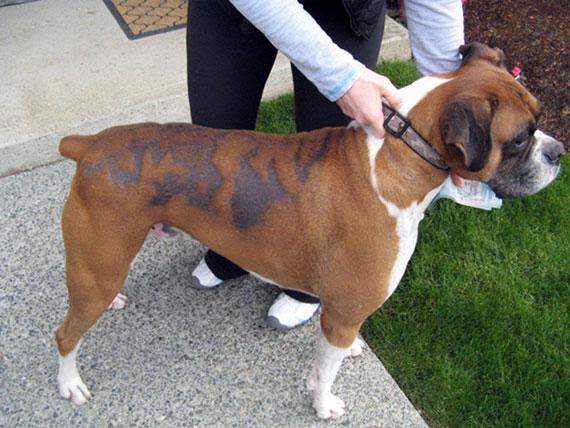
Dull coat, roughness, thinning, brittleness, slow regrowth, excessive shedding, and discoloration are all symptoms of protein deficiency or lack of specific amino acids.
To meet your dog’s protein intake, you can include both animal-based and plant-based sources of protein in their diet.
Chicken, beef, eggs, and yogurt are examples of animal-based ingredients that are rich in proteins.
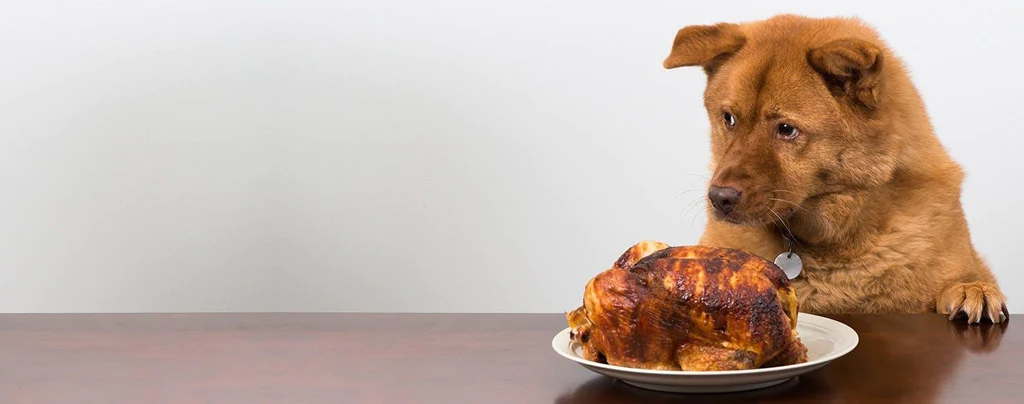
Beans and peas can supply plant-based proteins to promote your dog’s shiny and healthy coat.
Even though animal-based proteins are richer in specific essential amino acids, plant-based protein sources are healthier.
So, you have to balance plant-based and animal-based proteins if you’re making a homemade diet for your dog.
2. Vitamins
Including appropriate levels of Vitamin A in your dog’s diet can promote a healthy coat and skin.
Vitamin A includes retinol and beta-carotene, which catalyze cell growth and differentiation.
It is essential for keratin formation and also supports healthy hair follicles.
If your companion suffers from Seborrhea, you should increase rich sources of Vitamin A in their diet.
But, dog skin and coat supplements are the best option to address any skin issues quickly.
Vitamin E is an antioxidant that maintains the stability of cell membranes, skin functionalities, and modulates inflammation.
Vitamin C is also an antioxidant and supports collagen synthesis.
Both Vitamin E and C can promote a smooth and beautiful coat.
Vitamin C can repair damaged tissues and catalyze normal tissue growth.
Fruits like Apples are rich sources of Vitamin C and are among the list of healthy human foods that you can include in your dog’s diet.
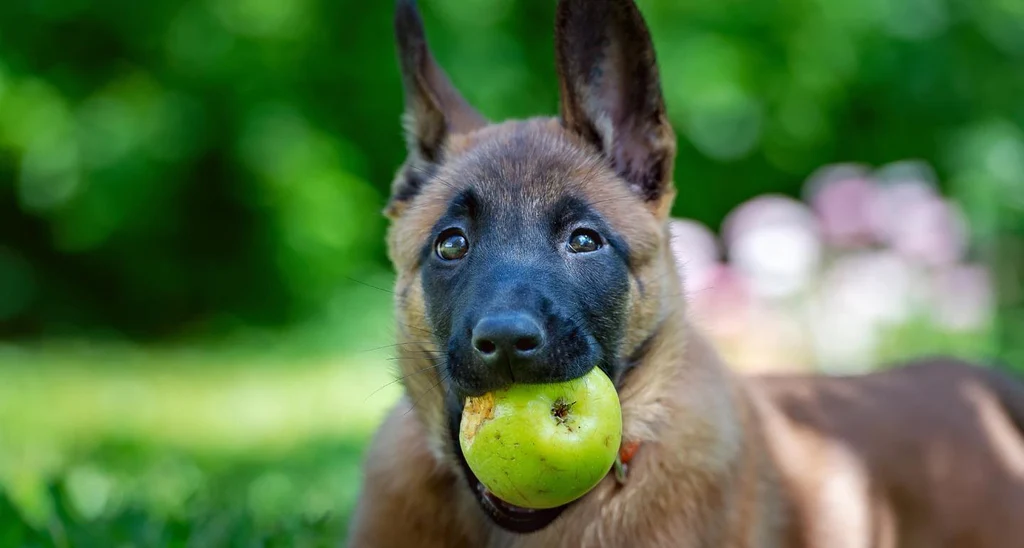
Biotin also helps in tissue growth just like Vitamin C but it delivers results within a short period.
It is a B-complex vitamin and highly recommended for growing puppies since it can catalyze rapid tissue growth.
If your puppy’s hair is brittle or discolored, it can be a result of Biotin deficiency.
The best dog supplement for dry skin contains Biotin and can help avoid deficiencies and protect your dog’s healthy coat.
3. Fatty Acids
Fats from animal-based and plant-based ingredients are broken down into fatty acids and incorporated into skin cells.
Essential fatty acids can maintain your dog’s healthy coat.
They moisturize your pal’s skin and boost protection against allergic triggers, inflammation, and infections.
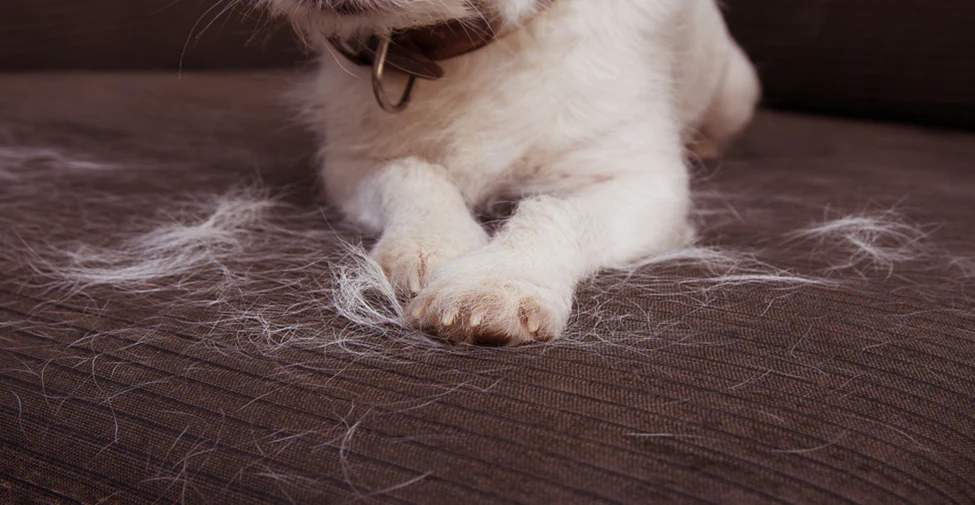

4. Omega 6 Fatty Acids
Reputable dog foods that are rich in omega-6 fatty acids can replace oils in the skin.
Omega-6 also promotes skin elasticity for a shiny coat.
Corn, canola, poultry fat, sunflower oil, and other vegetable oils are great sources of omega-6.
Some of these ingredients also contain linoleic acid, which is essential for a healthy coat and skin.
You can include these sources in your dog’s diet.
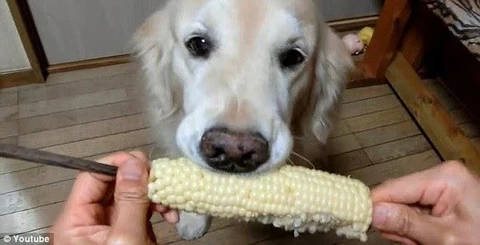

5. Omega-3 Fatty Acids
If your pal’s shiny coat is undermined by allergies, you can increase omega-3 fatty acids in their diet.
It also has anti-inflammatory qualities and can protect your dog’s coat from common skin diseases.
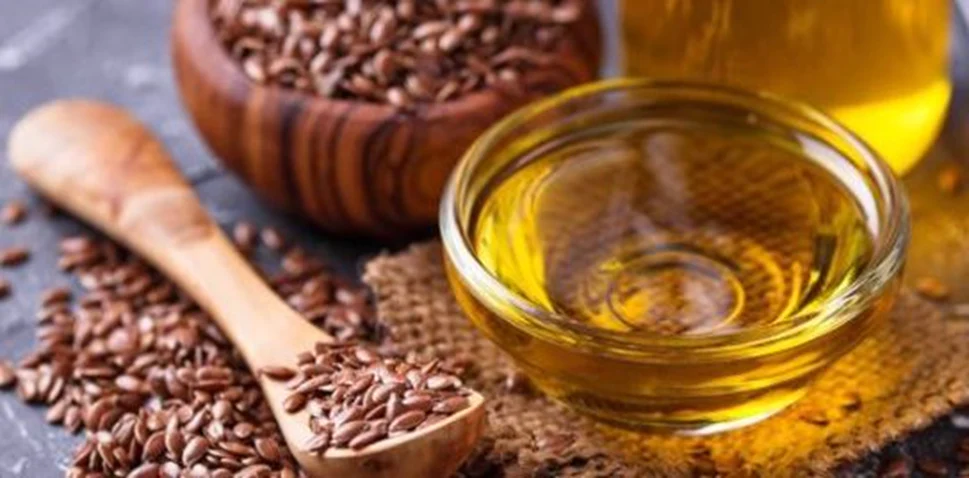

Rich sources of omega-3 fatty acids include flaxseed oil and fish oil.
You can also use dog supplements for dry skin to support omega-3 fatty acids and protect your dog’s beautiful coat.
6. Minerals
Your dog needs minerals for a healthy coat.
Minerals are essential for normal growth, regeneration, and turnover of skin cells and fur.
A balanced diet should include essential minerals like zinc and copper.
7. Zinc for Infection-Free Coat
High-quality diets that are rich in zinc can protect your dog’s healthy coat.
This mineral is known to prevent itchiness, inflammation, and skin infections.
Deficiency can lead to crusting on the skin.
Siberian huskies and Alaskan malamutes require more zinc in their diet because they are highly susceptible to zinc-responsive dermatosis. The best dog coat and skin supplement can help protect your dog’s shiny coat as well as general health.
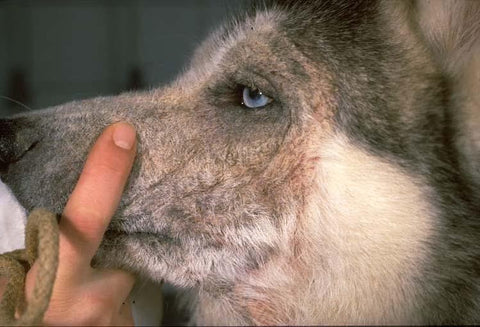

8. Copper for Colorful Coat
Appropriate dietary levels of copper promote a healthy, soft, and shiny coat.
Copper is responsible for the production of melanin and hair pigments.
Loss of pigment or dull coat may indicate a copper deficiency.
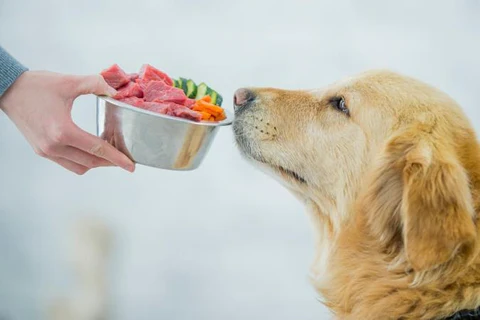

Diets rich in copper include meat, liver, fish, whole grains, and legumes.
Copper is added as a supplement to commercial dog foods.
Supplements for a Healthy Coat
Sometimes, your dog’s diet alone cannot supply enough proteins, vitamins, fatty acids, or minerals to maintain a lustrous coat.
In this case, you can use supplements to bridge the gap.
Dog skin and coat supplements offer an all-in-one solution.
They are highly effective and can restore your dog’s glossy and lustrous coat within a short period after starting supplementation.
Diet alone may not be enough to address common skin issues like dandruff, excessive shedding, and infections.
This is where dog supplements for dry skin come to the rescue.
Supplements are also highly recommended if your dog’s constant scratching and licking leads to loss of oil from the skin, hair thinning, bald spots, and dull coats.
Since your pal doesn’t have a dietary deficiency, you can use dog supplements for dry skin to replenish the oils regularly.


